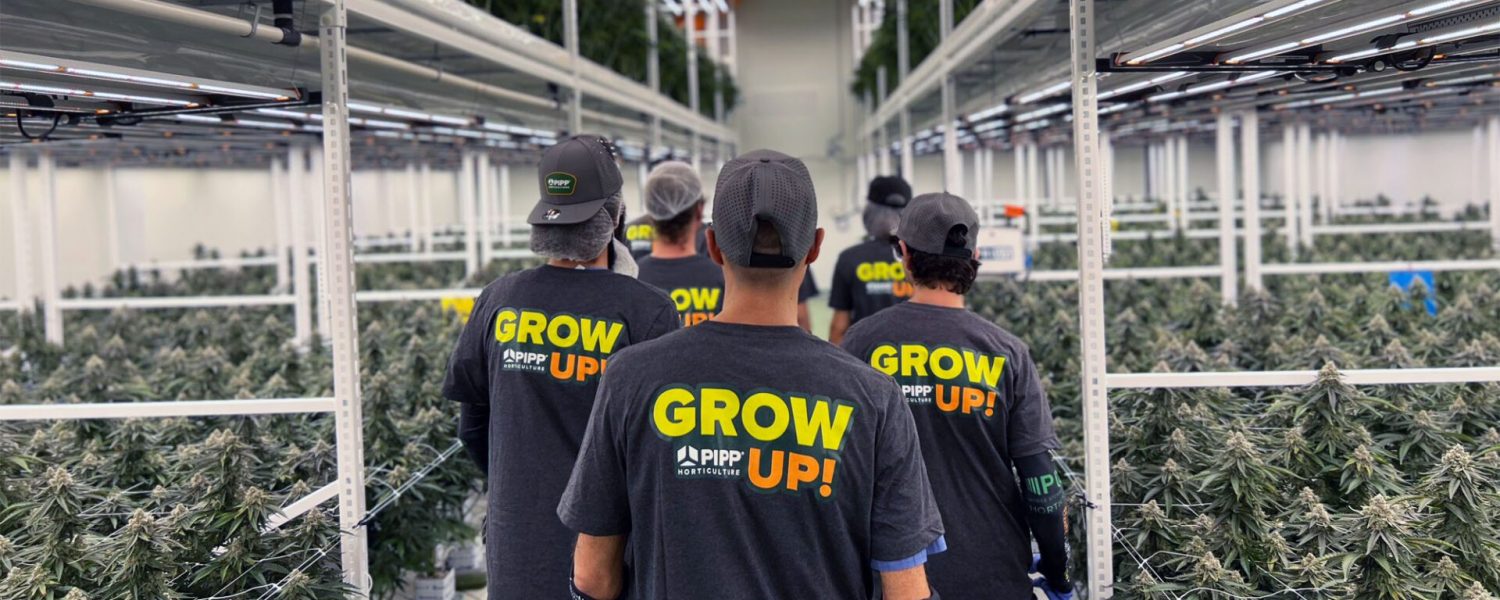European Cannabis Laws: What Is the Latest?

Where Is Cannabis Legal in Europe?
In mid-February, Ukraine President Volodymyr Zelenskyy signed into law a medical cannabis legalization measure. It was just the latest in a series of incremental cannabis reforms dotting the European landscape.

As the global perspective on cannabis continues to evolve slowly but surely, Europe emerges as a promising frontier for businesses.
With a patchwork of regulatory environments and an increasing acceptance of medical and adult-use cannabis, Europe presents opportunities and challenges for industry stakeholders looking across the pond.
Statista Market Insights places the expected 2024 value of the European cannabis market at US$10.2 billion–with a growth rate on the order of 14.32% over the next five years.
Tune into Cultivation Elevated Episode 22, while host Michael Williamson sits down with Sia Baneei of Grow Motion, a Swiss cannabis cultivation company, to delve into the intricate world of the European cannabis industry.
For cultivators and retailers who have experienced the dynamic growth of the cannabis industry in the U.S., the European market may be the next big venture. Let’s explore the landscape of the emerging cannabis marketplace in Europe, highlighting the potential for growth, regulatory considerations, and how businesses can position themselves for success in this new terrain.
European Cannabis Laws: An Overview
Europe’s cannabis market is in a state of flux, with countries at various stages of legalization and acceptance. Nations such as Germany, the Netherlands, and Portugal have made significant strides in cannabis reform, setting the stage for a burgeoning industry. Let’s take a tour.
Germany
Germany made global headlines in late February when the lower house of Parliament legalized adult-use cannabis in a limited capacity, the first legalization measure of its kind for a country of this size in Europe (Germany follows Malta and Luxembourg in legalizing cannabis on the continent).
The vote clocked in at 407-226, and arrived only after several years of ping-pong between a hardline “no” stance on legalizing cannabis and a willingness to draft actual regulatory language. In 2024, the willingness to open the door to cannabis reform won out.
While cannabis will be legal for those 18 and older (and legal to grow), lawmakers declined to take up a taxed-and-regulated marketplace for now. The legislation does allow for cannabis “clubs,” which will provide a space for up to 500 members to buy cannabis grown at home by other adults.
Health Minister Karl Lauterbach said the broader idea in Germany is to “fight the black market” and provide a measure of safety to cannabis use. “Whatever we do, we can’t carry on like this,” he told lawmakers, according to the Associated Press. “You can stick your head in the sand … but we won’t solve a single problem that way.”
Germany came into this year a leader in medical cannabis already, having legalized it in 2017. The country established a government-controlled system for cultivation, prescription, distribution, and imports, creating a significant market for medical cannabis products and associated equipment.
The Netherlands
Known historically for its liberal stance on cannabis, The Netherlands has tended to informally allow the sale of cannabis in coffee shops. In recent years, lawmakers have kicked the tires on plans to regulate the supply chain more formally.
The state launched a pilot program to legalize the sale of adult-use cannabis in December 2023, greenlighting coffee shops in the cities of Breda and Tilburg to sell cannabis grown by one of two licensed cultivators.
That marks the second European country to embark on a pilot program. The first country was…
Switzerland
Switzerland arranged a trial program for adult-use legalization in 2023. The country’s Federal Office for Public Health initially greenlit six pilot projects (three of which are already selling cannabis legally to Swiss citizens). More of those projects are expected as the program picks up momentum.
A federal commission stated in 2023: “Cannabis must be controlled, legally accessible, but not be promoted.” That’s a fine line to walk for small businesses interested in growing an audience and developing a brand.
“The cannabis business in Europe is very, very difficult,” Grow Motion’s Sia Baneei said in a recent Cultivation Elevated podcast episode. Grow Motion is a licensed cultivator in Switzerland’s high-CBD cannabis market. “We live in Switzerland, and the rent for our facility is very, very expensive. That’s why we wanted to get the maximum of our facility and why we made the decision to work on three layers [in a vertical farming room design].”
That’s another challenge that businesses will face in Europe, perhaps more so than in areas in the U.S.: Real estate is at a premium, and industrial space is simply more limited than it is in the rural stretches of, say, the Ohio cannabis market. A mobile vertical racking system can go a long way toward maximizing grow space while maintaining safe and easy access to plants, solving critical needs in cramped quarters. 
Portugal
Having decriminalized all drugs in 2001, Portugal has taken steps toward a regulated medical cannabis market and is seen as a potential hub for cultivation due to its favorable climate. Companies of all sizes have set up shop in Portugal, using the state as a formidable base of operations for corporate headquarters and cultivation sites.
As of the end of 2023, the majority party in the federal government was developing a task force to closely look at cannabis legalization prospects. That party is not alone; support for broad legalization measures has increased across the government in recent years.
Somai Pharmaceuticals founder and CEO Michael Sassano told Business of Cannabis, “Discussions like Portugal’s decision to move forward with studying to legalizing adult-use cannabis and other discussions around legalizing medical cannabis are being taken up by most EU countries more progressively than ever before. Much has to do with the potential U.S. rescheduling to Schedule III and the German descheduling of a narcotic. Global winds are changing fast, and Portugal is still very much at the top of the list as a potential new country moving towards legalizing cannabis”.
The Czech Republic
The Czech Republic announced its intention to legalize cannabis, but that plan does not include any real tax-and-regulate system that would allow sales. The country decriminalized possession for personal use in 2010, meaning that this current plan would effectively reiterate the status quo and apparently add provisions for cannabis use in social clubs. After a show of political support for a regulated market from some political leaders, this “compromise” plan leaves licensed corporations and suppliers mostly on the sidelines. That said, we anticipate more information to come in 2024.
The lack of a formal market structure will be hotly debated this year.
“The existence of a commercial and strictly regulated market with licensed growers and stores is a basic prerequisite for the successful reform of anti-cannabis laws, as is evident all over the world – from Colorado to California to Canada or Switzerland and the Netherlands,” CzecHemp manager Lukáš Hurt said in a translated press release. “Thanks to regulation, it is possible to significantly reduce the revenues of the illegal market and at the same time obtain funds for effective drug prevention and education.”
France
France began a medical cannabis experiment in 2021, offering free products to thousands of patients. The trial program was expected to sunset in the spring of 2024, but for now, the Minister of Health is open to a plan that will gradually transition that arrangement to a more formal (yet still “temporary”) medical cannabis regulatory structure for the next five years.
This plan is in flux, so we anticipate learning more soon, but France has shown a willingness to broaden its access and industry sophistication with this news.
The UK
While not a member of the European Union, the UK has also made strides in step with its neighbors. Following its 2016 departure from the EU, the UK legalized an extremely tightly regulated medical cannabis program; the UK’s National Health Service has not developed this program much further than allowing limited prescriptions.
That said, the industry is livelier in the UK than it might seem; the country ranks among the largest exporters of medical cannabis products in the world.
Across Europe, the recent shifts towards decriminalization, and even recreational legalization in some jurisdictions, signal a broader change in societal attitudes towards cannabis.
This evolving regulatory landscape presents a fertile ground for innovation and investment but requires a nuanced understanding of each country’s legal framework.
Navigating Regulatory Complexities
The demand for medical cannabis in Europe is on the rise, driven by an increasing body of research supporting its therapeutic benefits and a growing awareness among the population. This uptick in demand signals a burgeoning market for cannabis-related products and business solutions.

The continent’s diverse regulatory landscape means that what works in one country may not apply in another. For businesses looking to enter the European cannabis market, understanding and navigating these regulatory complexities is paramount.
Compliance with local laws and standards for the cultivation, storage, and distribution of cannabis products is critical, underscoring the need for adaptable and compliant solutions. To succeed in Europe, suppliers must tailor their offerings to meet the specific needs and regulations of each market.

